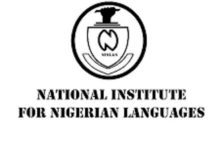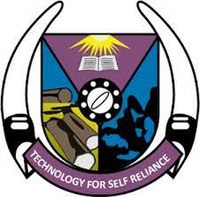List of Cheap Private Universities in Cross River State
Cross River State has some of the most affordable universities in Nigeria. Here’s an overview of the top cheap private schools where you can get a quality education without breaking the bank.
With affordable tuition, quality programs, and stunning campuses, these budget-friendly universities in Cross River State offer students a chance to earn a degree without spending a fortune. For those on a tight budget, these schools are perfect places to consider.
List of Cheap Private Universities in Cross River State
When looking for an affordable yet high-quality education in Cross River State, you have several great options to choose from. Here are the top 5 most affordable private universities worth considering:
1. University of Calabar (UNICAL)
Established in 1973, UNICAL is one of the cheapest universities in Nigeria with tuition of around ₦150,000 per year. They offer programs in fields like law, medicine, engineering, and business. UNICAL has a scenic campus and vibrant student life.
2. Cross River State University of Science and Technology (CRUTECH)
CRUTECH, founded in 2002, has a tuition of ₦120,000 annually. They are focused on science, engineering and technology programs. Facilities are basic but functional, and many graduates find jobs with companies in Port Harcourt and Calabar.
3. College of Education, Akamkpa
For those interested in a career in teaching, Akamkpa College of Education offers National Certificate in Education (NCE) and Bachelor of Education (B.Ed) degrees for around ₦80,000 per year. Established in 1977, the school has a rural campus in a peaceful setting.
4. University of Cross River State (UNICROSS)
UNICROSS opened in 2005 and charges ₦140,000 in tuition. They offer programs in fields such as business, social sciences, humanities, and education. Class sizes are small, and lecturers are generally considered supportive and accessible. The campus provides a close-knit community feel.
5. Cross River University of Digital Technology (CRUDIT)
CRUDIT, founded in 2016, focuses on ICT and costs ₦120,000 per year. They offer degrees in computer science, information technology, and software engineering. Tech-savvy students will appreciate their modern facilities and opportunity to gain practical skills. CRUDIT aims to produce graduates ready to work in Cross River’s growing digital economy.
With affordable tuition, smaller class sizes, and job-focused programs, these private schools offer an appealing alternative in Cross River State. Which one is right for you?
Scholarships and Financial Aid Available at Affordable Universities in Cross River State

Cross River State has several affordable universities that offer scholarships and financial aid for students.
Here are some options to consider:
1. Federal Government Scholarships
The Federal Government offers scholarships and bursaries for students in tertiary institutions across Nigeria, including those in Cross River State. Some options include:
- The Nigerian University Commission (NUC) Scholarship – For high-achieving undergraduate students. Covers tuition and accommodation fees.
- The Petroleum Technology Development Fund (PTDF) Scholarship – For undergraduate and postgraduate students in science, technology, engineering and mathematics. Provides full funding.
- The Nigerian Content Development and Monitoring Board (NCDMB) Scholarship – For students in oil and gas related fields. Offers full tuition and stipend funding.
2. State Government Scholarships
The Cross River State Government provides scholarships and bursaries for indigenous undergraduate and postgraduate students. These include:
- The Cross River State Government Scholarship – For high-achieving students accepted into state universities. Covers tuition, accommodation, and stipend.
- The Cross River State Bursary – For continuing students with a minimum CGPA of 3.0. Provides funding for books, accommodation and stipend.
3. University-Based Aid
Most affordable universities in Cross River State offer scholarships, bursaries and work-study programs for their students. These may cover partial or full tuition fees, accommodation, books or a monthly stipend. Options include:
- Merit-based scholarships for high-achieving applicants and continuing students.
- Needs-based bursaries for students from disadvantaged backgrounds.
- Work-study programs where students work on campus in exchange for financial assistance.
With many scholarships and bursaries available in Cross River State, financing your education at an affordable university is within reach. Be sure to apply for any opportunities you may be eligible for to get the funding you need.
Conclusion
In summary, cheap private universities in Cross River State provide accessible tertiary education for students from diverse backgrounds. Do not let limited resources deter you from pursuing a college degree. With hard work and determination, you can achieve your dreams.
FAQs
Here are some of the common FAQs and answers:
1. Do I need a high JAMB score to gain admission into these universities?
Not necessarily. While a good JAMB score can improve your chances,
these affordable universities consider other factors like your O’Level results, extracurricular activities, and admission interviews. Some may not even require JAMB scores at all for certain programs.
2. Are the programs accredited?
Yes, all programs offered in these universities have been accredited by the National Universities Commission (NUC). This means the quality of education meets the minimum standards set by the NUC.
3. What are the tuition fees like?
Tuition fees in these universities typically range from ₦150,000 to ₦350,000 per session. Some offer scholarships and bursaries to help reduce the financial burden on students. It is best to check with your chosen university for their current fees.
4. What facilities and resources do they have?
These universities provide basic facilities needed for learning like classrooms, laboratories, libraries, auditoriums, and student hostels. While not as advanced as federal universities, they offer opportunities for practical learning and extracurricular activities. Some partner with companies and organizations to provide internships and job opportunities for students.








